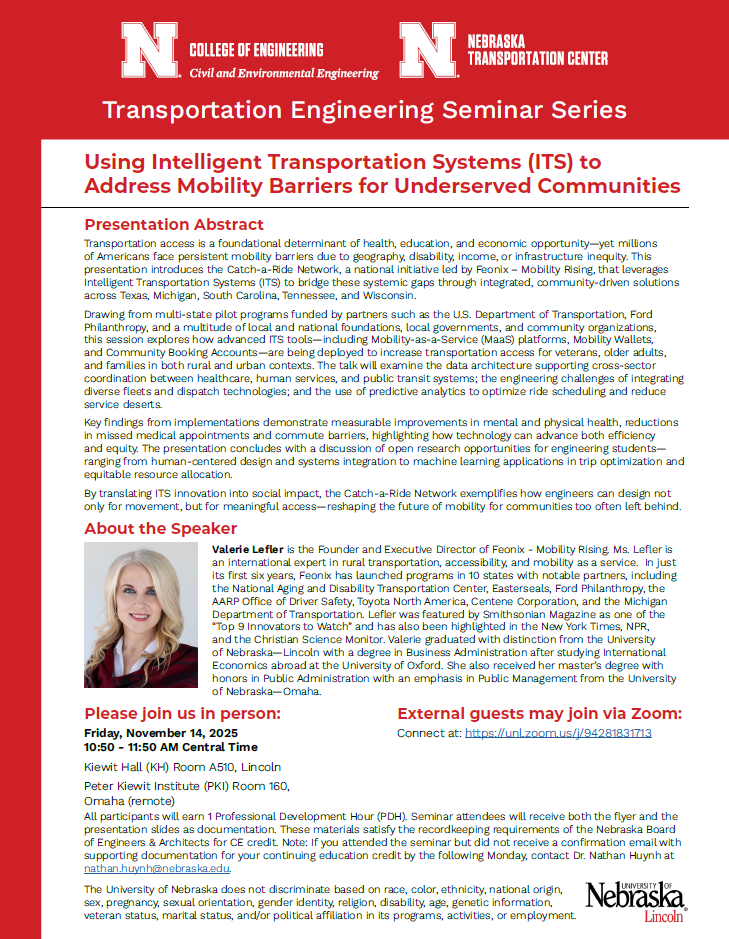
Speaker: Valerie Lefler, Founder and Executive Director of Feonix - Mobility Rising
When: Friday, November 14th, 10:50am-11:50am
Where: KH A510 (Lincoln), PKI 160 (Omaha)
Zoom: https://unl.zoom.us/j/94281831713
Title: Using Intelligent Transportation Systems (ITS) to Address Mobility Barriers for Underserved Communities
Abstract: Transportation access is a foundational determinant of health, education, and economic opportunity—yet millions of Americans face persistent mobility barriers due to geography, disability, income, or infrastructure inequity. This presentation introduces the Catch-a-Ride Network, a national initiative led by Feonix – Mobility Rising, that leverages Intelligent Transportation Systems (ITS) to bridge these systemic gaps through integrated, community-driven solutions across Texas, Michigan, South Carolina, Tennessee, and Wisconsin.
Drawing from multi-state pilot programs funded by partners such as the U.S. Department of Transportation, Ford Philanthropy, and a multitude of local and national foundations, local governments, and community organizations, this session explores how advanced ITS tools—including Mobility-as-a-Service (MaaS) platforms, Mobility Wallets, and Community Booking Accounts—are being deployed to increase transportation access for veterans, older adults, and families in both rural and urban contexts. The talk will examine the data architecture supporting cross-sector coordination between healthcare, human services, and public transit systems; the engineering challenges of integrating diverse fleets and dispatch technologies; and the use of predictive analytics to optimize ride scheduling and reduce service deserts.
Key findings from implementations demonstrate measurable improvements in mental and physical health, reductions in missed medical appointments and commute barriers, highlighting how technology can advance both efficiency and equity. The presentation concludes with a discussion of open research opportunities for engineering students—ranging from human-centered design and systems integration to machine learning applications in trip optimization and equitable resource allocation.
By translating ITS innovation into social impact, the Catch-a-Ride Network exemplifies how engineers can design not only for movement, but for meaningful access—reshaping the future of mobility for communities too often left behind.